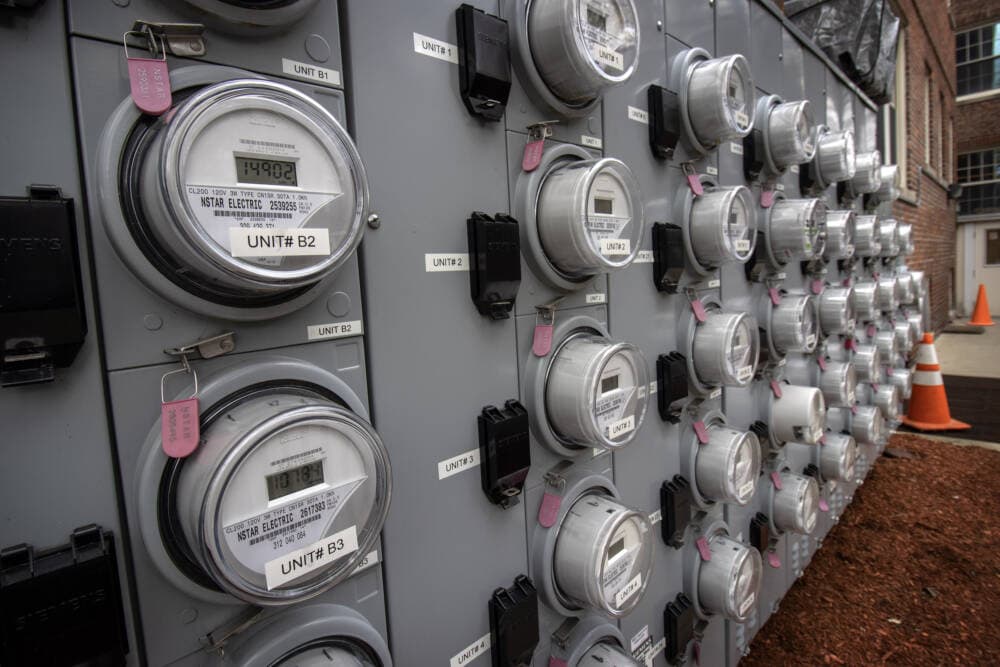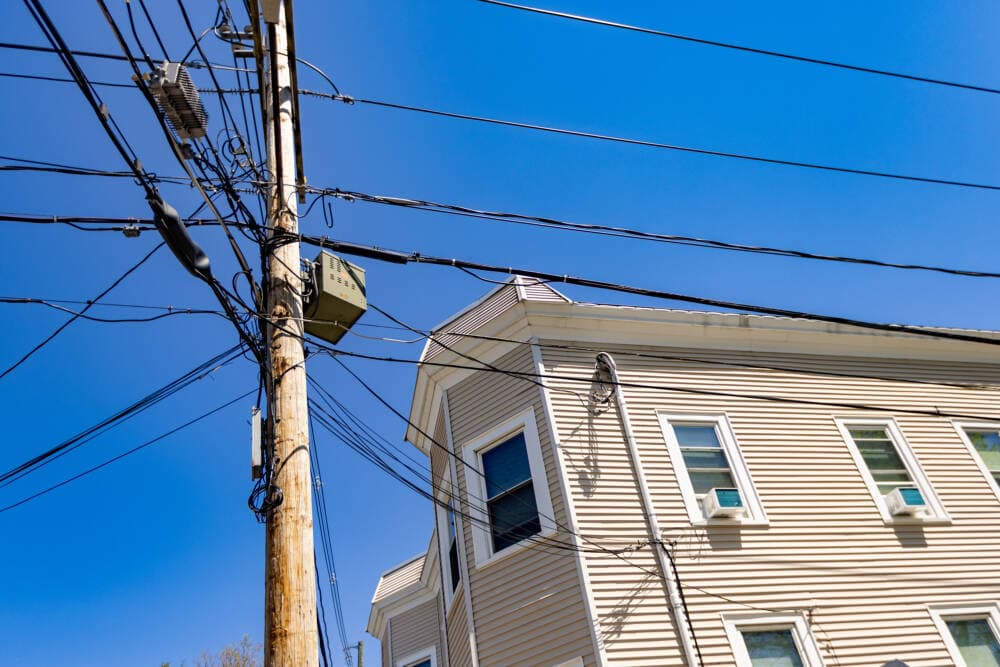Bigger electric bill breaks are coming for some low-income residents in Mass.

Many low-income residents living in National Grid’s service area will soon get a big break on their electric bills. The Massachusetts Department of Public Utilities on Monday approved a plan from the company to substantially overhaul its program that gives less affluent residents a discount on their monthly bills.
Instead of offering a flat 32% discount to qualifying customers, National Grid will use a tiered structure that gives up to a 71% discount on monthly electric bills.
To help put some numbers to this change, consider the following examples:
- In the past, a family of four making $30,000 a year and a family of four making $90,000 a year would both receive a 32% discount — so if their monthly electric bills were $200, they only have to pay $136.
- Now, the first family would get a 71% discount and the second family would still get a 32% discount. Their monthly electric bills would be $58 and $136, respectively.
“The first-of-its-kind tiered discount program proposed by National Grid will provide important financial assistance to low-income electric customers in Massachusetts,” the company wrote in an email. It added that qualifying customers will continue to receive the current discount until the new program goes into effect in “mid-2025.”
James Van Nostrand, chairman of the Department of Public Utilities, called the new rate structure “equity-based” and said in a statement that it would “help make energy more affordable.” He added that the department also approved “an incentive mechanism to encourage National Grid to reach out to more customers to increase enrollment in the new program, ultimately providing more assistance to those who need it most.”
As of August 2024, National Grid said about 160,000 customers in Massachusetts received the discount rate. The company estimates that about 390,000 households in its territory are likely eligible.
While some states, like Connecticut and New Hampshire, already offer multi-tiered electric discount rates, National Grid’s new program will be the first time a utility in Massachusetts offers such a program. It’s a change Charlie Harak, a senior attorney at the National Consumer Law Center said is long overdue.
“A flat discount rate of 32% probably makes bills, if not always affordable, at least close to affordable for people near 60% of median income. But it didn’t do much for people at the bottom end,” he said. “This will make it much easier for them to actually afford their bills and therefore avoid having their utility services terminated for nonpayment.”
Massachusetts has some of the highest electricity rates in the country with residents paying about 28.15 cents per kilowatt hour for power. The national average, by contrast, is 16.41 cents per kilowatt hour.
For most Massachusetts residents, high electric bills may be a pain, but not bank-breaking. According to the state, the average household pays about 3% of its monthly income on energy bills. But for low-income households, the so-called “energy burden” can be much higher. The average low-income family spends about 10% of its monthly income on energy bills, and in certain neighborhoods, the energy burden can be as high as 31.5%.
“People just can’t spend that large of a percentage on their energy bills,” Harak said, “particularly because [Massachusetts is] a state were low-income people tend to pay way more than 30% of their income on rent.”
Data compiled by the National Consumer Law Center last spring found that 822,000 Massachusetts were at least 30 days behind on their gas and electric bills. Of that group, 420,000 were at least 90 days behind on bills and at risk of having their utilities shut off. Low-income customers in arrears owed, on average, $1,444.
Massachusetts law forbids utilities from shutting off electricity or gas service between Nov. 15 and March 15 if a customer can’t pay their bill. In 2022, according to the National Consumer Law Center, about 61,000 residential customers in Massachusetts were disconnected for non-payment.

Utilities don’t give low-income customers discounts out of the goodness of their hearts. When a customer receives a lower rate, the remainder of what they originally owed is paid for by all other customers not on the discount rate program. In its order, the Department of Public Utilities noted the balance it needed to strike between helping low-income residents pay their bills and not saddling all other ratepayers with even higher bills.
The commissioners wrote that they felt they achieved a good balance, but retained the right to revisit the rate structure in the future.
According to the Department of Public Utilities, the average National Grid customer not receiving a discounted electric rate would see a 2.6-2.8% increase on their monthly bill to cover the cost of this new program. A spokesperson for National Grid said the company estimates that will work out to about an extra $2.50 a month.
National Grid proposed the new low-income discount rate structure as part of the electric rate case it filed in November. Rate cases are the formal process by which the state determines how regulated utilities can recoup costs from customers. The complicated regulatory proceedings that take about 10 months. For this reason, rate cases only happen once or twice a decade.
The Department of Public Utilities began a separate proceeding earlier this year — known colloquially as the “affordability docket” — to investigate ways to make energy more affordable for low- and moderate-income residents. Implementing a state-wide tiered discount rate could be one of the outcomes, the department said.
The state is particularly concerned with high electric rates because getting residents to “electrify” home heating and transportation is a cornerstone of the state’s climate policy.
Qualifying electric customers in Eversource and Unitil territories will continue to receive a flat discount rate of 42% and 34.5%, respectively.
This article was originally published on WBUR.org.
The U.S. saw stunningly strong growth in jobs last month. Here’s what to know
U.S. employers added more than a quarter million jobs in September, while the unemployment rate fell to 4.1%. Here's what to know about the data.
‘Mississippi Five’ parole issues highlight the toll of ‘graying’ in Gulf South prisons
A campaign to free five women, known as the "Mississippi Five," shows how prison populations throughout the region are aging.
President Biden visits South Georgia, assesses damage from Helene firsthand
President Joe Biden visited South Georgia on Thursday to assess storm damage from Hurricane Helene firsthand. GPB’s Sarah Kallis reports from Berrien County.
In swing-state Wisconsin, new districts threaten the GOP hold on the Legislature
Wisconsin has long been a presidential swing state, but thanks to new maps, it's now also a potential swing state for the legislature for the first time in 15 years.
Harris is meeting with a group of Arab Americans in Michigan today
Arab Americans have been frustrated with the Biden administration’s response to the ongoing war in Gaza and the expanding conflict into Lebanon.
Why New England could see more of the Northern Lights — including this weekend
If you missed seeing the Northern Lights this past May, you might soon have another chance.






